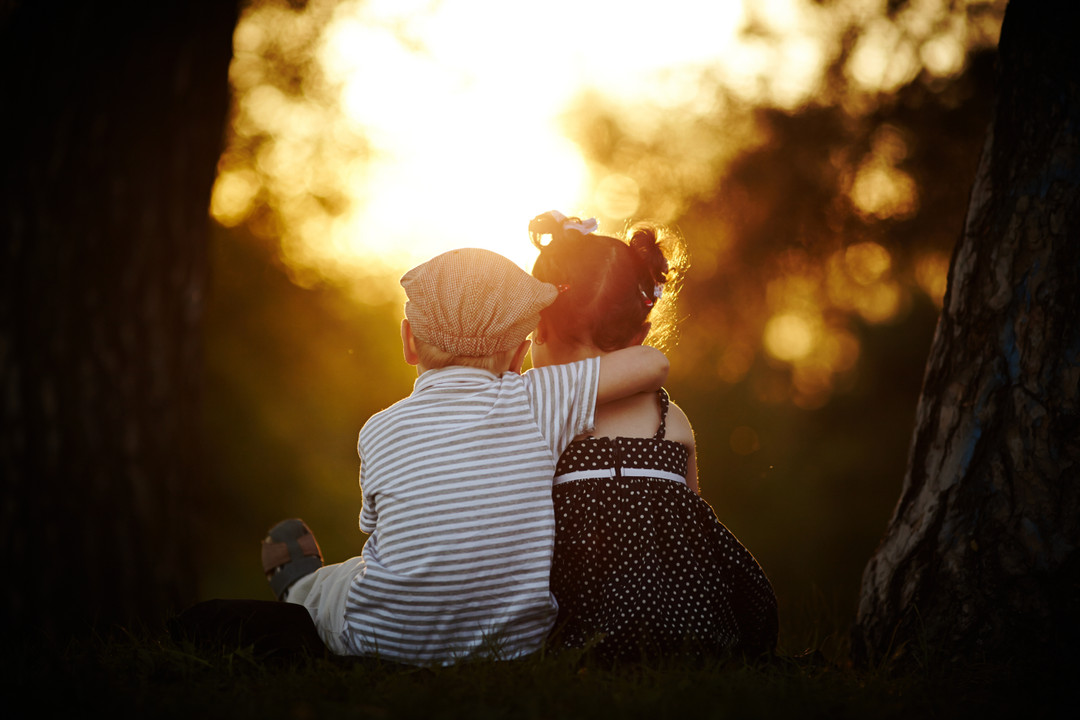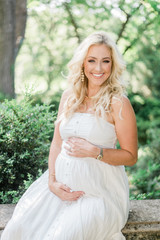The Virtue of Love
The Virtue of Love:
A Special Way of Being Alive
By: The Good & True Team
Out of all the virtues we seek to pass along to our children, love may be the hardest to define. Children are constantly asking the questions: “How much do you love me?”, "What’s true love?”, and “How did you know you loved mommy/daddy?” Our children are surrounded by images of what love is whether on TV or in their books. Perhaps our best stab at defining it should come from everyday observances.
For instance, a young couple strolls the neighborhood with their children, each of which has their own personality. The parents are laughing at something the four-year-old has said. Of course, the four-year-old is always saying something funny. But the mom holds the hand of their six-year-old who is the shy, pensive one. And the baby in the stroller has her own personality, as well. It shifts from hard-headed to cheerful and back again! Love is certainly present in the nurturing of those parents who love each of their children no matter how different they are. We see the individual character of it in the communion of motherhood and fatherhood. And yet, in the blink of an eye, our children are gone, and letting them go to live their own lives is also a reflection of great love.
There is also a larger-than-life aspect of love that transcends our humanity. An eighty-five-year-old man sits by the bedside of his wife of sixty years. He gently pats her hand. They look at each other and take comfort in that face to which each has awakened every day for so many years. Their eyes well up and they trade a tender kiss, hoping there will be another tomorrow. The Christian philosopher, Gabriel Marcel, spoke of the transcendence of love when he said, “You know you have loved someone when you have glimpsed in them that which is too beautiful to die.” Love, by its very nature, lives on.
You know you have loved someone when you have glimpsed in them that which is too beautiful to die.
- Gabriel Marcel
Love also defines us as individuals. The poet and essayist, Thomas Merton, wrote, “Our conception of ourselves is bound to be profoundly affected by our conception - and our experience - of love. And our love, or our lack of it, our willingness to risk it or our determination to avoid it, will in the end be an expression of ourselves: of who we think we are, of what we want to be, of what we think we are here for.” And so, we look to our experience of love in those around us: our spouses and our children, our extended family and friends who consume our days and nights. We also seek to give to those with special needs of our love, care and protection, so that we are moved to pray or give alms or volunteer. We express our love with an affection befitting our particular roles in life.
Again, Thomas Merton says, “…love is not just something that happens to you: it is a certain special way of being alive.” We express our love in how we live, in the action we decide to take for the edification and enrichment of our fellow creatures, who, most of the time, God has placed in front of our very eyes.
Written by The Good & True Staff
SHOP OUR CATALOG
JOIN OUR MAILING LIST
Enter your email for helpful content and exclusive deals!






